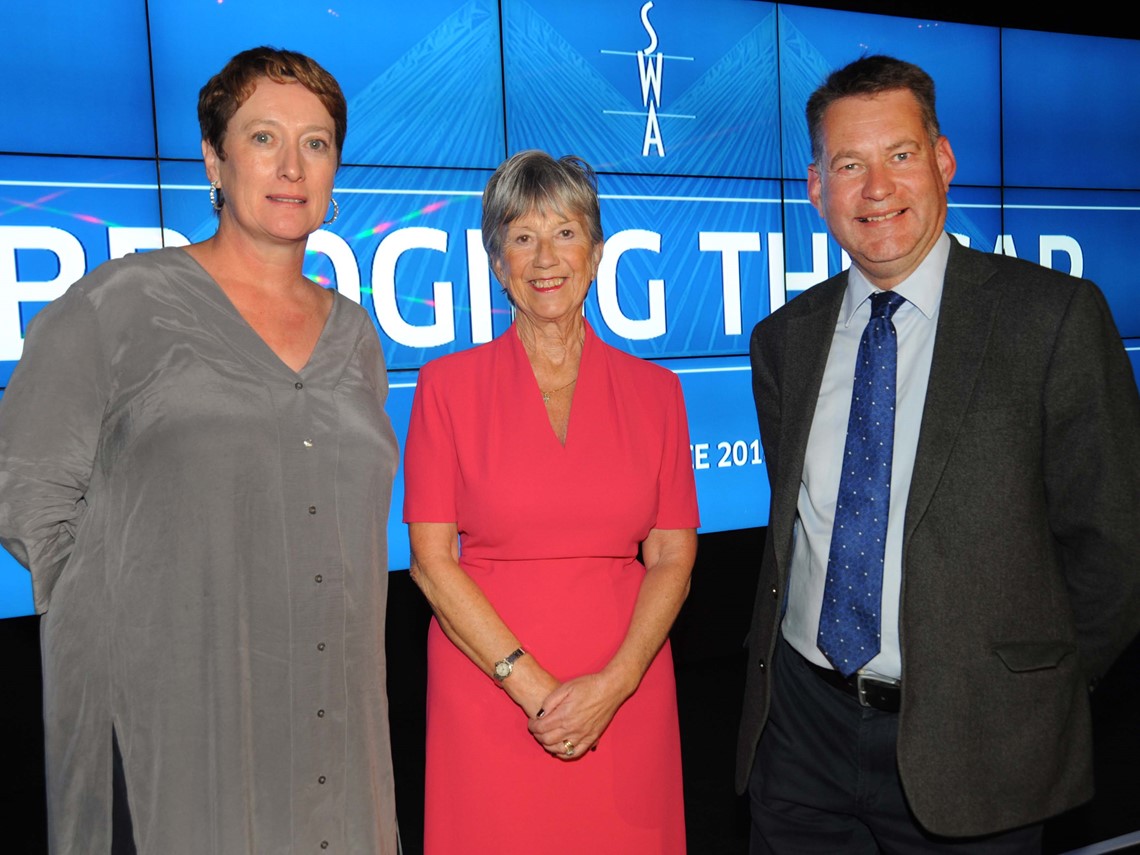Scottish Wholesale Association puts focus on people and embraces change

The Scottish Wholesale Association must be steadfast in supporting its members in times of change – that was just one of the key messages from president Julie Dunn at the trade body’s annual conference at the weekend.
“Change is inevitable and when it’s made to impact positively on the health of the nation, or tackling the issues round the poverty gap or improving our environment, it is a great thing and something we must embrace,” said Dunn, operations director at Blantyre-based foodservice and licensed wholesaler, Dunns Food and Drinks.
“But I think it is the rate of change which can at times seem overwhelming and the fact that often the advice given or the steps required are ill thought out,” she continued. “This is where the association must be steadfast in supporting our members. It is our job to help our members ensure that they march pace for pace to the rate of change. But we need the members – wholesalers and associate suppliers – to engage right back.”
Dunn also spoke about the SWA’s collaborative approach, working with suppliers, partners and other trade associations and organisations to ensure a louder voice for the wholesale industry on a number of pertinent issues. “Our role is to ensure a healthy, dynamic and relevant trade association,” she said.
“We have partnerships with legal firm TLT on licensing issues, 121 HR Solutions on all things employment-related and Caledonia Public affairs continues to assist us in navigating the corridors of Holyrood. All our partners’ advice is free to all members.
“We continue to collaborate closely with the Federation of Wholesale Distributors (FWD) and the Scottish Grocers’ Federation (SGF) on those matters which impact on our members and their customers,” she continued, citing minimum unit pricing (MUP) as a prime example of a collaborative approach.
“Nowhere has this been more evident this year than the body of work done round MUP and its implementation and ongoing clarification,” Dunn said. “Our work on the deposit return scheme (DRS) continues with Zero Waste Scotland representatives visiting a number of member depots to gain understanding of our concerns and requirements, plus our ongoing attendance at their seminars and consultations.”
Other groups the SWA has worked with in the last year include Scotland Food & Drink, the Scottish Tourism Alliance and Women in Wholesale.
“But it is the work we're doing in training which remains at the forefront of our agenda,” Dunn continued, suggesting that by investing in the individual and bringing out their strengths you will strengthen your business. “A strong business leads to a strong economy – healthy and wealthy communities.
“Wholesale is big business – we are the route to market for Scotland’s food and drinks industry and its associated products – so we need to attract, train and retain wholesale talent.”
Dunn said that wholesale should be “the destination not the stopover on the way to brand central”, pointing out the SWA’s work in developing links between education and industry. “Once we get young people through our doors we must have the training infrastructure in place to keep them,” she said. “That work is ongoing and quite challenging but moving forward.”
Recent training sessions have been “varied and packed”, co-ordinated by 121 HR Solutions and funded by the SWA or supplier members. Subjects covered have included GDPR, selling skills and effective management skills courses. “I urge members to take advantage of this extremely cost-effective training and ask suppliers to consider opening their training to us,” Dunn said.
She went on to described the SWA’s much-lauded Mentoring Programme as “one of our greatest achievements” but urged more people to come forward and participate as both mentors and mentees.